Field-based high throughput phenotyping identifies genes controlling yield in rice
 The classic art of plant breeding involves carefully examining a genetically segregating population for traits of interest. Increasingly, high-throughput, automated phenotyping systems are being used; for example, robots can carry plants to imaging chambers for data collection. However, growth-chamber grown plants do not fully replicate the range of conditions experienced by field-grown plants. Tanger et al. describe the application of a field-based, high throughput phenotyping system for rice (based on one developed for cotton). The tractor-based system uses multispectral reflectance and ultrasonic sensors to measure canopy height, temperature depression, and several reflective ratios at a rate of 3000 plots/hr, as compared to 45 plots/hr for manual phenotyping. As a proof-of-concept, the authors identified four alleles with a negative effect on grain yield that are fixed in a modern cultivar (IR64); replacing these negative alleles should lead to yield improvements. Sci. Rep. 10.1038/srep42839
The classic art of plant breeding involves carefully examining a genetically segregating population for traits of interest. Increasingly, high-throughput, automated phenotyping systems are being used; for example, robots can carry plants to imaging chambers for data collection. However, growth-chamber grown plants do not fully replicate the range of conditions experienced by field-grown plants. Tanger et al. describe the application of a field-based, high throughput phenotyping system for rice (based on one developed for cotton). The tractor-based system uses multispectral reflectance and ultrasonic sensors to measure canopy height, temperature depression, and several reflective ratios at a rate of 3000 plots/hr, as compared to 45 plots/hr for manual phenotyping. As a proof-of-concept, the authors identified four alleles with a negative effect on grain yield that are fixed in a modern cultivar (IR64); replacing these negative alleles should lead to yield improvements. Sci. Rep. 10.1038/srep42839


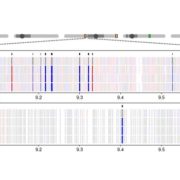
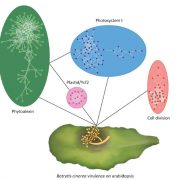

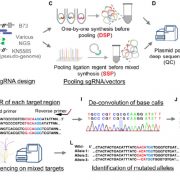
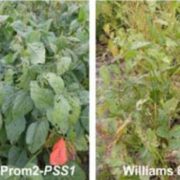
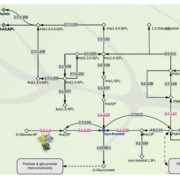


Leave a Reply
Want to join the discussion?Feel free to contribute!